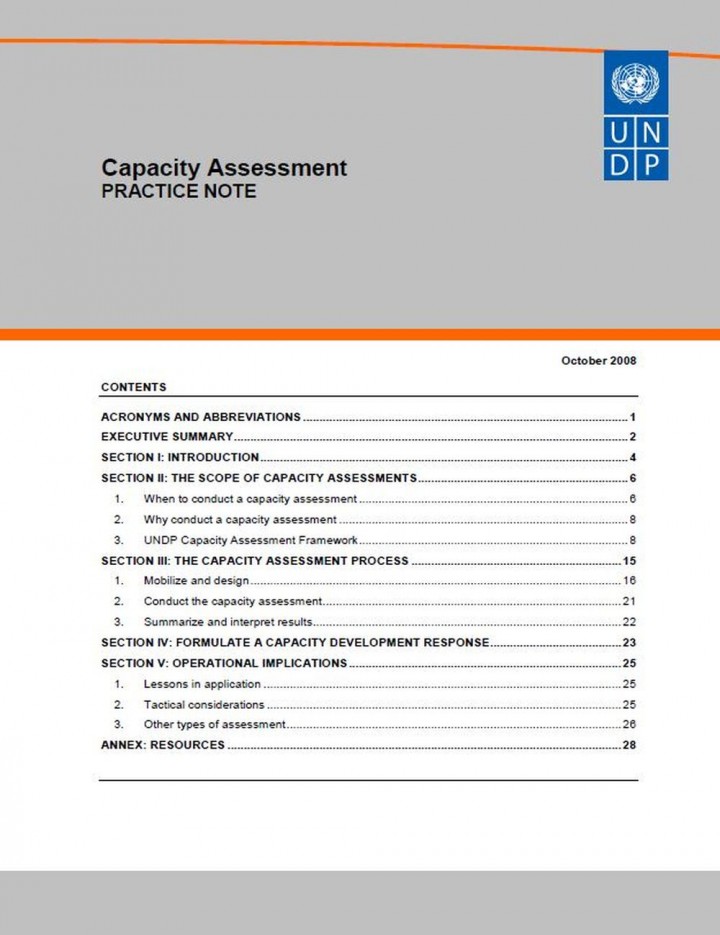
Published in: 2008
Pages: 31
Publisher:
United Nations Development Programme (UNDP), New York, USA.
Author:
UNDP
Uploaded by:
SuSanA Admin
Partner profile:
common upload
5043 Views
95 Downloads
The achievement of the Millennium Development Goals and other international and national development targets hinges on capacities of individuals, organizations and societies to transform, in order to reach their development objectives. While financial resources, including official development assistance, are vital, they are not enough to promote sustainable human development. Without supportive laws, policies, strategies and procedures, well-functioning organizations, and educated and skilled people, countries lack the foundation to plan, implement and review their national and local development strategies. Capacity development helps to strengthen this foundation. It is the ‘how’ of making development work better.
UNDP defines capacity development as ‘the process through which individuals, organizations and societies obtain, strengthen and maintain the capabilities to set and achieve their own development objectives over time.’1 To support this process effectively requires identifying what key capacities already exist and what additional capacities may be needed to reach these objectives. This is the purpose of a capacity assessment. A capacity assessment is an analysis of desired capacities against existing capacities which generates an understanding of capacity assets and needs that informs the formulation of a capacity development response. UNDP has developed a methodology for conducting capacity assessments that is systematic and rigorous, yet flexible and adaptable to different contexts and needs. It does not offer a blueprint, but serves as a point of departure for a capacity assessment. The UNDP Capacity Assessment Methodology consists of three components – the UNDP Capacity Assessment Framework, a process and supporting tools. This practice note introduces the first two components. It discusses the dimensions of the UNDP Capacity Assessment Framework and provides process guidelines for managing an assessment, from mobilizing stakeholders to designing the assessment approach to conducting the assessment, and analyzing and interpreting its results. It also discusses how these results lead to the formulation of a capacity development response. Additional guidance on the process and supporting tools can be found in the UNDP Capacity Assessment Methodology User’s Guide.
Bibliographic information
UNDP (2008). Capacity Assessment - Practice Note. United Nations Development Programme (UNDP), New York, USA.
Filter tags
Capacity development (WG1)















